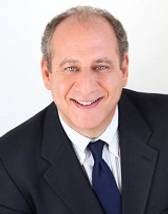Breaking the Impasse: Security Sector Reform in Sudan
External actors can play an important role in supporting a Sudanese-led solution to security sector reform in the country.
The current conflict in Sudan is rooted in the failure of the Sudanese armed forces (SAF), led by General Abdel Fattah Al-Burhan, and the Rapid Support Forces (RSF) of General Mohamed Hamdan Dagalo (known as Hemeti) to seriously address security sector reform (SSR), especially integration of disparate branches of the security sector under a unified civilian authority. In countries emerging from violence and authoritarian rule, SSR is part of a broader transitional justice strategy, which goes together with efforts to disarm, demobilise and reintegrate (DDR) armed groups. With Sudan in chaos and foreign diplomats fleeing the country, SSR and DDR need to ultimately be addressed in order to stabilise the country and advance sustainable peace.
Transitional justice is a term used to describe how a society comes to terms with a legacy of human rights abuses and violations of international humanitarian law. It helps to consolidate political transition from an authoritarian or dictatorial regime towards democratic government, which protects and promotes human rights. Transitional justice is critical to achieving sustainable peace, the rule of law and state-building.
The complementary pillars of transitional justice are:
- Accountability (investigating and prosecuting those responsible for mass crimes).
- Truth seeking (uncovering and making public the truth about the violations, including the root causes).
- Repairing the lives of victims (providing redress and reparations).
- Undertaking reforms (consolidating democratic developments and preventing recurrence or backsliding).
Reform focuses on the security sector (that is, armed forces, law enforcement and intelligence agencies). SSR aims to create effective and rights-respecting security and justice institutions in the government that are controlled by civilians and operate in accordance with human rights standards and democratic governance.
SSR has many components. It involves vetting members of the security and justice sectors, and removing from office those responsible for violating human rights or international humanitarian law. This process may also involve disbanding military, police or other security structures responsible for crimes. Purging personnel from the security apparatus must abide by due process of law and the principle of non-discrimination.
Security sector reform involves vetting members of the security and justice sectors, and removing from office those responsible for violating human rights or international humanitarian law
SSR and DDR are linked. DDR seeks to remove weapons from combatants (disarmament), remove combatants from military structures (demobilisation) and help the former combatants to integrate socially and economically into society (reintegration). DDR seeks to make ex-combatants ‘stakeholders in the peace’.
For sure, DDR alone cannot build peace, nor can it prevent the armed groups from reverting to violence. It needs to be implemented as part of comprehensive strategy for peacebuilding and reconstruction. In addition to focusing on individuals, assistance should benefit whole communities to obviate resentment that may arise towards ex-combatants.
DDR can help to ensure the long-term success of SSR because it moves ex-combatants into official security structures or assists their transition to civilian life. When SSR and DDR work together, they enable post-conflict countries to provide security and uphold the rule of law, which is necessary for sustainable development. SSR and DDR also enable economic growth.
Al-Burhan wants to integrate RSF personnel into a professional army within two years. Dagalo anticipates a longer process that could take up to 10 years. The details of SSR can be confounding. Not only the top brass, but also commanders and foot soldiers vie for positions in an integrated armed force.
Personnel not only want to save their jobs during a democratic transition. They also want to preserve kleptocratic networks, which were built up during the regime of former dictator Omar Al-Bashir. Criminality enriched individuals up and down the chain of command.
Not only the top brass, but also commanders and foot soldiers vie for positions in an integrated armed force
These networks are often beholden to external actors who share the spoils. For example, the SAF is known to have close ties with Egypt’s military. On Saturday, the RSF allegedly attacked an airfield in Merowe 350 km north of Khartoum, seized Egyptian captives and took possession of Egyptian MiG-29 fighter jets.
Dagalo is known to have ties with the UAE. Until recently, he worked with Russian mercenaries in the Wagner Group to extract gold from West Sudan for export to Russia through the UAE. Dagalo maintains that he discontinued cooperation with the Wagner Group about six months ago.
Sudan’s crisis requires a Sudanese-led solution. External actors, such as the US, can help by mediating disagreements between the parties. They can also contribute by making experts available to advise the government on SSR.
Resolving today’s impasse will require both political will and expertise. SSR and DDR should be integrated into an agreement between al-Burhan and Dagalo that restores constitutional government and power-sharing. Sudan is not the first country to require DDR and SSR alongside a broader transitional justice programme. International experts can help Sudanese understand the process and craft an agreement, advancing a sustainable solution.
The views expressed in this Commentary are the author’s, and do not represent those of RUSI or any other institution.
Have an idea for a Commentary you’d like to write for us? Send a short pitch to commentaries@rusi.org and we’ll get back to you if it fits into our research interests. Full guidelines for contributors can be found here.
WRITTEN BY
Professor David L. Phillips
RUSI Senior Associate Fellow, RUSI International
- Jim McLeanMedia Relations Manager+44 (0)7917 373 069JimMc@rusi.org


